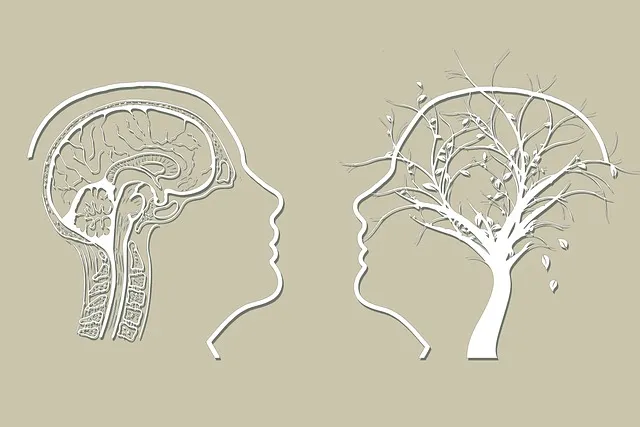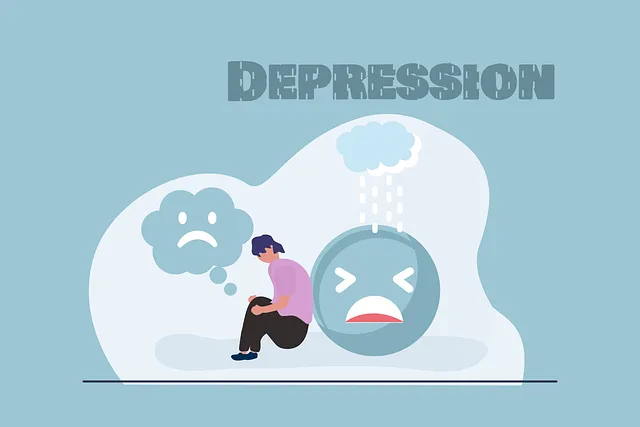Community outreach programs led by Northglenn Kaiser Permanente psychiatry have significantly transformed mental health care accessibility and community well-being. Through interactive sessions like Mind Over Matter and Empathy Building Strategies, these initiatives empower individuals to manage their mental health, fostering trust and encouraging support-seeking. Positive reviews highlight the lasting impacts on participants' lives, making it a compelling case study for effective mental health service provision in diverse communities. Key strategies include tailored programs, local partnerships, cultural sensitivity, and remote access technology, with continuous evaluation and community feedback crucial for refinement. Qualitative impacts, such as anxiety relief and confidence building, are essential metrics for success, including improved trust, communication, and safe spaces for seeking mental health support.
Community outreach programs play a pivotal role in improving mental health care, especially in diverse communities. This article delves into the significance and impact of such initiatives, using Northglenn as a case study to illustrate successful engagement strategies. We explore how organizations like Kaiser Permanente Psychiatry Reviews are revolutionizing access to quality care through innovative outreach. By examining best practices and evaluation methods, this guide offers insights for implementing effective programs, ensuring positive outcomes for both communities and healthcare providers.
- Understanding Community Outreach: Its Role and Impact in Mental Health Care
- Northglenn: A Case Study on Engaging a Diverse Community
- Kaiser Permanente Psychiatry Reviews: Unlocking Access to Quality Care
- Implementing Effective Outreach Programs: Strategies and Best Practices
- Measuring Success: Evaluating the Outcomes of Community Engagement Initiatives
Understanding Community Outreach: Its Role and Impact in Mental Health Care

Community outreach programs play a pivotal role in enhancing mental health care accessibility and improving overall community well-being, especially in areas like Northglenn where diverse populations reside. These initiatives, often spearheaded by healthcare organizations such as Kaiser Permanente, aim to bridge the gap between specialized psychiatric services and individuals who might face barriers to receiving adequate care. By extending outreach into communities, mental health professionals can foster a sense of belonging and trust, encouraging individuals to seek support for their psychological well-being.
One of the key advantages lies in the potential to boost confidence among individuals struggling with mental health issues. Through interactive sessions and workshops, the Northglenn Kaiser Permanente psychiatry team employs evidence-based practices like Mind Over Matter principles and Empathy Building Strategies. These approaches not only educate community members about mental health but also empower them to manage their well-being effectively, fostering a sense of self-reliance and resilience. Such initiatives have been shown to significantly impact positive outcomes in mental health care, leaving lasting impressions on the lives of those reached through these outreach programs.
Northglenn: A Case Study on Engaging a Diverse Community

Northglenn, a diverse city in Colorado, serves as an excellent case study for community outreach program implementation. Kaiser Permanente, a healthcare organization with a strong presence in the area, recognized the need to engage and serve its diverse population effectively. They embarked on a journey to understand the unique challenges and needs of Northglenn’s residents, focusing on mental health services. The city’s mix of cultures, socioeconomic backgrounds, and age groups required tailored approaches.
By organizing public awareness campaigns and workshops, Kaiser Permanente aimed to reduce the stigma associated with mental illness. These initiatives included educational programs, support groups, and community events that encouraged open conversations about mental well-being. The organization also incorporated local leaders and community health workers into their strategy, ensuring trust and cultural sensitivity. Through these efforts, Northglenn residents gained access to essential resources, fostering a more supportive environment for those dealing with mental health issues. The case of Northglenn highlights the impact of developing effective Public Awareness Campaigns and Stress Reduction Methods while tackling Mental Illness Stigma Reduction Efforts in diverse communities.
Kaiser Permanente Psychiatry Reviews: Unlocking Access to Quality Care

In Northglenn, Kaiser Permanente Psychiatry has been at the forefront of revolutionizing access to quality mental health care. Through innovative community outreach programs, they’ve unlocked doors for many individuals seeking support. By integrating initiatives like Inner Strength Development and Self-Awareness Exercises, these programs not only address immediate needs but also focus on fostering long-term resilience. The approach is holistic, aiming to reduce the Mental Illness Stigma, which often prevents people from seeking help.
These reviews highlight successful strategies that combine clinical expertise with a deep understanding of community dynamics. By bringing mental health services directly to communities, Kaiser Permanente Psychiatry ensures that care is accessible, convenient, and culturally sensitive. This proactive approach has significantly improved overall well-being in Northglenn and serves as a model for other healthcare organizations looking to make a similar impact.
Implementing Effective Outreach Programs: Strategies and Best Practices

Implementing effective community outreach programs requires a strategic approach and a deep understanding of the local needs. Northglenn Kaiser Permanente psychiatry reviews highlight successful initiatives that focus on engaging with diverse populations, fostering trust, and offering accessible mental health services. One key strategy is to tailor programs to specific demographics, addressing unique challenges faced by each group. For instance, developing Mental Wellness Coaching Programs tailored for youth can help improve self-esteem and promote positive thinking from an early age.
Best practices include building partnerships with local organizations, schools, and community leaders who can amplify the program’s reach and ensure cultural sensitivity. Regular evaluation and community feedback are vital to refining these initiatives. By integrating evidence-based practices and incorporating innovative approaches like technology for remote access, communities can enhance their mental wellness offerings, ultimately fostering a more supportive and resilient environment as seen in successful Northglenn Kaiser Permanente psychiatry reviews.
Measuring Success: Evaluating the Outcomes of Community Engagement Initiatives

Evaluating the success of community outreach programs is a vital step in understanding their impact and identifying areas for improvement. When measuring outcomes, it’s essential to go beyond simple participation numbers and delve into the qualitative effects on the targeted communities, especially when addressing mental health issues like anxiety relief and boosting confidence, as seen in Northglenn Kaiser Permanente psychiatry reviews.
Cultural sensitivity in mental healthcare practice is a key aspect that can significantly influence engagement. By assessing changes in community members’ perceptions of mental health services, access to care, and overall well-being, organizations can gauge the success of their initiatives. This includes considering how programs have contributed to building trust, improving communication, and fostering an environment where individuals feel comfortable seeking help for their mental health concerns.
Community outreach programs, as exemplified by Northglenn’s successful engagement strategies and Kaiser Permanente’s Psychiatry Reviews initiatives, play a pivotal role in enhancing mental health care accessibility. By implementing effective outreach, we can unlock hidden potential, bridge gaps in healthcare services, and ensure that diverse communities have access to quality care. Evaluating these programs through robust outcome assessments is essential to continually refine and optimize their impact, ultimately fostering healthier, more resilient communities.






